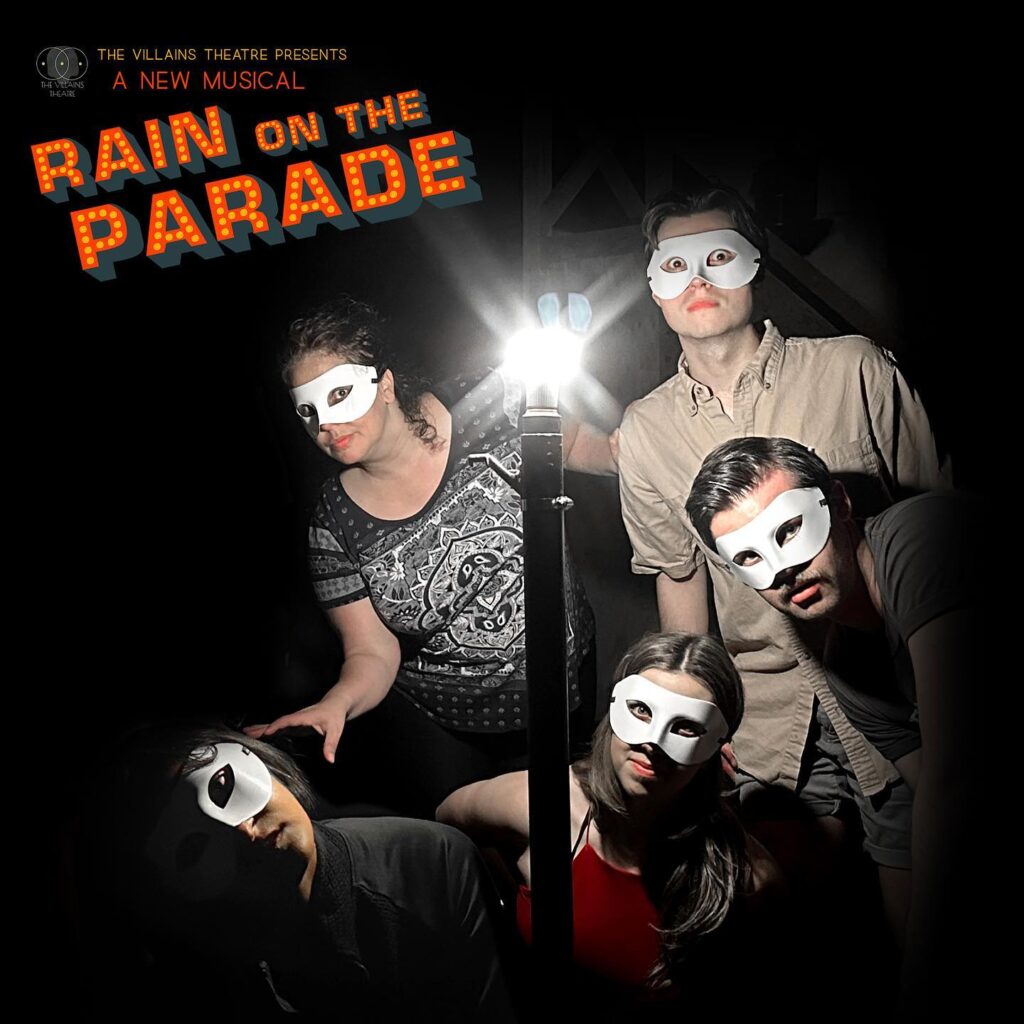
I sat down with Dan Bray and Colleen MacIsaac of The Villains Theatre, and playwright/director Evan Brown at The Oxford to chat about Rain on the Parade, a new musical written by Brown with Garry Williams, which plays at the Neptune Theatre Scotiabank Stage June 21-25th, 2023.
Dan Bray also plays Elsworth/ Gorman Roach and Colleen MacIsaac plays Zimon/ The Narrator in the production.
The story of the musical is a very timely one. It centres on the theatre artists of the Chronus Theatre who are trying to bounce back after a tragedy that shuttered their previous season. “It shut our theatre down and scared our audiences away,” says Dan Bray, explaining that the play originally came out of the Covid-19 pandemic. “It’s about this theatre company preparing to re-open, but there are also these parallels to Hamlet that are established early in the show,” Bray explains, saying that along with the challenges of remounting the play they had planned to present before the disaster, this prompts the company to ask, “what is this play?” “Is the play cursed?” “It’s a sort of supernatural, meta-theatrical story of the fallout of this cursed play,” Bray says.
Colleen MacIsaac adds, “It’s about this community both recovering from a tragedy and trying to figure out a way forward, but then, how do you go forward without just repeating your old mistakes or going back to ways that things have been done before that actually aren’t serving you or the future?” “It’s a love letter to the theatre,” adds Brown, “I wanted it to be something funny and something very dark and absurd. It’s about how we have to be careful about the stories that we tell to each other sometimes. I think we can pass down, it doesn’t sound very funny, but we can pass down, generationally, very damaging ideas: racism, sexism, homophobia, and even stuff in relation to climate change… But how do I create a show that is pleasing for me to share and fun to do? How can we do something hilarious and wonderful that is completely horrifying? The original inspiration for the show is definitely a mashup of Hamlet and Urinetown. What does that look like? This is where we’ve arrived.”
Bray interjects that there are also elements that resemble Twin Peaks, “a lot of supernatural doubling, and the weird, quirky humour of… a weird little hidden community out of touch with the rest of the world.” “It’s very much an ensemble piece,” says MacIsaac, “it’s about a very interesting group of characters that are all really relatable in many ways, despite being in this kind of heightened universe.”
MacIsaac and Bray commissioned the work from Brown, and it originated as a Zoom Play last year. It became a musical more recently, and this presentation at the Studio is a fully-staged workshop that will allow Brown and Williams to see how well the book and the music are working together for an audience.
It was partly the big emotions that the Covid-19 pandemic elicited that transformed Brown’s play into a musical. “There was definitely a desire to ride a threshold of comfort- a tension of ‘I don’t know whether I want to laugh or cry,’ and that definitely came from a Covid place, and how challenging everything was for all of us. We had to learn a new way to live, and we didn’t know if what we were doing was right from one day to the next, and it was very scary. That’s the headspace I was in when I was trying to walk the tightrope of this show, and the deeper I got into these ideas, the more I felt that it seems perfectly natural that after some of the events in this show that someone turns and starts singing,” says Brown, “I’ve never written a musical before, and Garry Williams has been really generous and an incredibly knowledgable tutor, bringing me along as he is doing the compositions, about the process that someone goes through before they [begin] to sing. I think a lot of us felt that we needed something to sing about [during the pandemic], be that mourning or grief or joy and relief at something new happing, a new day, or a break in the storm… Some of the ideas [in the play] were so absurd, strange, and dangerous that they seemed easier to address in song.”
“I think Evan’s writing is traditionally, but also, I would say in this piece, very intentionally Shakespearian, which a lot of people refer to as ‘heightened language’,” says Bray, “but I’ve heard, and preferred, that it’s ‘language suitable for a heightened situation’, using this larger-than-life language to discuss themes that most of us have never dealt with before… when it becomes too big for ‘heightened language’ it turns into song.”
Brown’s favourite song in the show is called “Ozymandias in Carcosa,” which came out of a conversation he had with Williams about his favourite poem, “Ozymandias” by Percy Bysshe Shelley, and wondering what that character might look like wandering around Ambrose Bierce’s fictional city of Carcosa.
As a playwright Brown speaks about how difficult it is to see a play through the various stages of rewrites, development, and workshops that it takes to create a work that feels ready for an audience without the support of others. “I think most circumstances that I’ve made plays under were so desperate… I’m always changing gears, going from month to month, trying to figure it out. We were really lucky with the funding we got [for Rain on the Parade], and I’m really lucky with the support that I got from Villains. I’ve never had a company treat me with the respect and support that they have.”
“We feel very lucky too, because we both have been huge fans of Evan’s writing for so many years,” says MacIsaac, referencing how originally they had approached Brown with the idea to produce one of his older plays, written over a decade ago, but how excited they were when he mentioned that he was interested in creating something new. “The reason that we produce plays is that we like them and we believe in them,” continues MacIsaac, “but I feel like this one especially we’ve just been so excited from the beginning of the process, and we’re having a blast in rehearsal, and [Dan and I] are both performing in it, as well as producing. The team is so great.” On the producing side, MacIsaac says they’ve already put things in motion to continue to develop this piece, and are hoping to bring it back again in a premiere version, possibly with a producing partner, in the future.
Brown has worked backstage at Neptune Theatre over the last seventeen years, and is the current Head of the Staging Department. He wrote Rain on the Parade specifically with this stage in mind. “It’s driven me mad for years, we have that incredible catwalk in the Studio and no stairs to it. So, we have stairs,” he says. “We use the whole theatre in a way I’ve not seen that stage used before,” adds Bray.
The Villains Theatre has been creating work in Halifax for fifteen years, and the company recently has been shifting more and more to producing works by other local theatre writers, like Brown and Williams. They remain committed to working with young and emerging artists, as well as providing mentorship opportunities for those still in university, or who have recently graduated from school, to work with and learn from more established professional artists. All three mention how many talented folks auditioned for this show. “We could have cast the show five times,” says Brown. MacIsaac adds that the audition process creates an exciting opportunity for them to meet new people, and to keep artists in mind for future projects. “We love doing shows, and we do a lot of them,” MacIsaac laughs, “there are so many times we will maybe see someone in an audition room two or three times, and we are just [waiting for the right project to come along] so we can work them.” MacIsaac and Bray are passionate about providing younger artists with opportunities that didn’t exist when they first started their company, “We had some people, like Evan, who supported us early on,” says Bray, “but mostly we were figuring it out on our own. We didn’t have a huge support system when we were starting Villains. Colleen got a lot of infrastructure experience working at 2b…” “We were just kind of constantly learning from everything we did, to make it better the next time,” adds MacIsaac. But now, fifteen years on, they’re really proud to be able to support the work they believe in, like producing Sarah Deller’s play Coarse last year at the Chester Playhouse.
“We are really hoping with the increase in the provincial and municipal budgets that we will be able to get a little more funding,” says MacIsaac, “it’s not lost on us the amount of privilege we have to be able to still be going at this as volunteers in our Artistic Director/Artistic Producer positions for the last fifteen years…. If you look at the ecology of the theatre in Nova Scotia, the number of contemporaries of our company, there are so few because there was no operating funding increases. So many of the theatres that started when we did died out… It’s really exciting that there’s a little more that’s been injected now, and I’m hoping that will not only mean great things for Villains’ stability but for [newer theatre companies, like The Unnatural Disaster Theatre Company and Gale Force Theatre, in the province as well]. We are trying to make it a better world than the one we came up in. We don’t want the people coming up now having to deal with… unsafe situations, or not having access to opportunities… we want people to be paid… and that’s the ethos of team building that Evan has done on Rain on the Parade too, that you have these people who have years of experience in the field, and people who have just come into it working alongside another another, and there’s a lot of mutual benefit to that.”
The ensemble in Rain on the Parade’s Chronus Theatre mirrors somewhat the same issues we face, both as a theatre community in Halifax, but also as Haligonians more broadly. “That’s one of the things that I love about the play, and one of the reasons that Dan and I originally approached Evan to commission this piece, and have been so happy to work on it and produce it, is that it does deal with these really really dark, heavy, prescient, and many different aspects of both theatre and society at large, and on a individual and collection level,” says MacIsaac, “but it’s also very funny and very weird.”
The Villains Theatre’s production of Rain on the Parade plays at Neptune Theatre’s Scotiabank Studio (1589 Argyle Street) from June 21 to 25th. Performances are at 7:30pm from Wednesday to Saturday with performances at 2:00pm on Saturday and Sunday. Tickets are available online here and are Pay What You Can on a sliding scale. The show is General Admission; if you require wheelchair seating please phone the Neptune box office at 902-429-7070. A list of content warnings is available here.
There is a free streamed performance which takes place on June 24th: click here to sign up.
Neptune Theatre is fully accessible for wheelchair users. For more Accessibility Information click here.

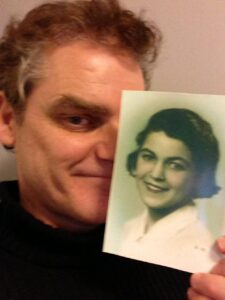
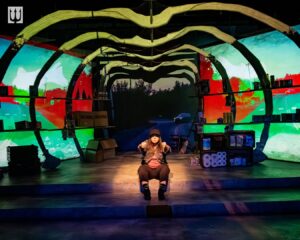

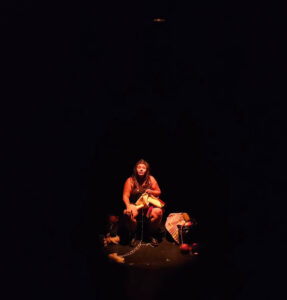
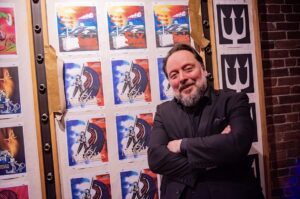
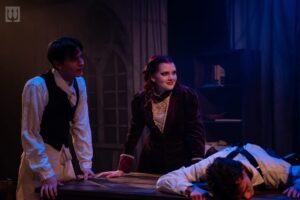

1 thought on “The Villains Theatre’s New Musical: On Creating Theatre Community Onstage & Off”
Comments are closed.